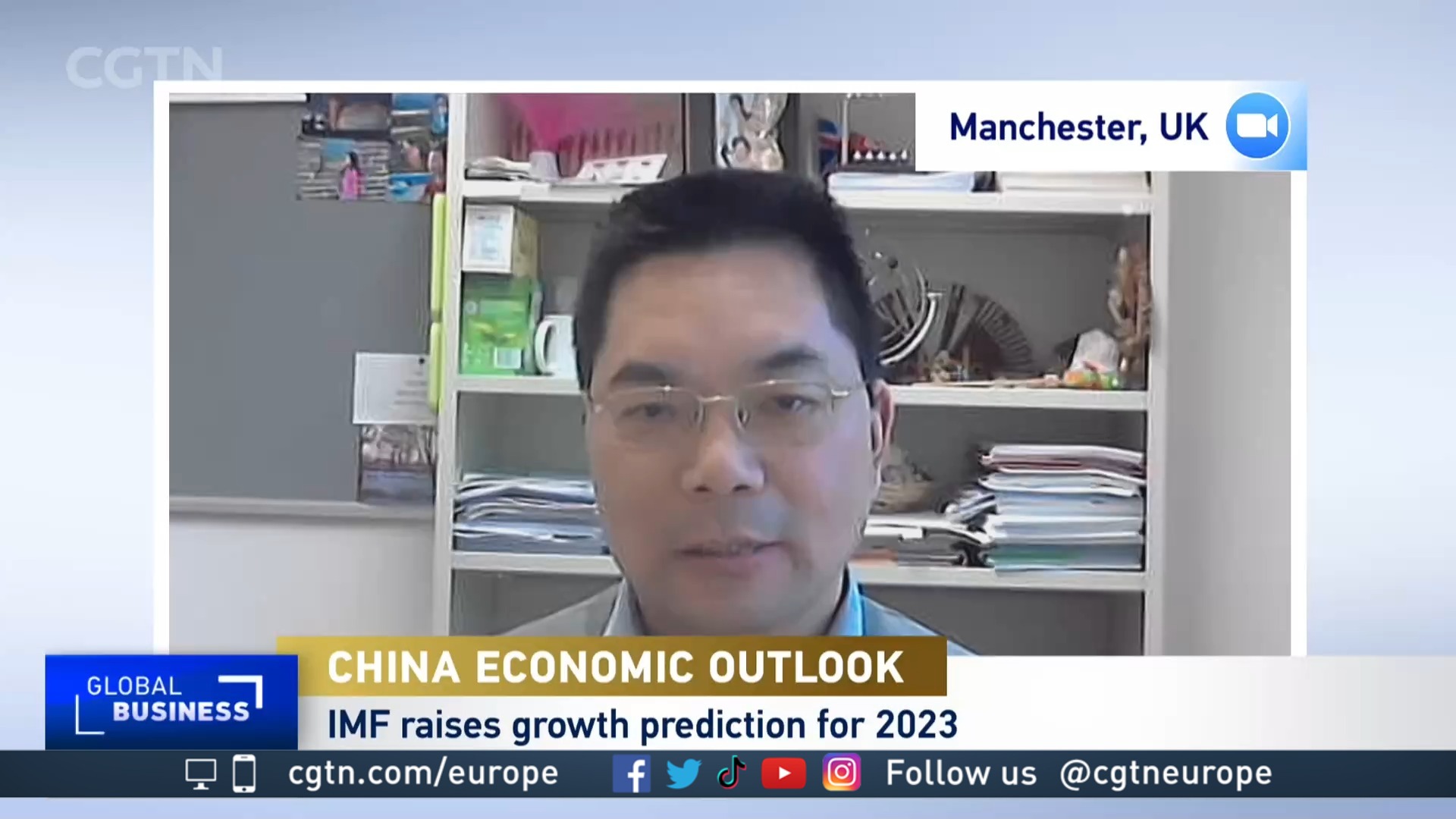
A bank employee count Chinese yuan notes next to U.S. dollar notes at a Kasikornbank in Bangkok, Thailand. /Athit Perawongmetha/Reuters
A bank employee count Chinese yuan notes next to U.S. dollar notes at a Kasikornbank in Bangkok, Thailand. /Athit Perawongmetha/Reuters
The International Monetary Fund (IMF) has reported China and India will continue to lead the global economic recovery while Europe's advanced economies will continue to struggle in 2023 although most will avoid recession.
China's real GDP is expected to rise by 5.2 percent this year, that is seven times more than France (0.7 percent), eight times faster than Italy (0.6 percent) and over 50 times larger than Germany (0.1 percent).
The IMF raised its 2023 global growth outlook slightly due to "surprisingly resilient" demand in the U.S. and Europe, an easing of energy costs and the reopening of China's economy after Beijing lifted its COVID-19 restrictions.
READ MORE
World Bank: China and U.S. can cooperate
EU Parliament chief vows reforms
The Secret Betrayal: China's WWII sailors
For 2024, the IMF said global growth would accelerate slightly to 3.1 percent, but this is a tenth of a percentage point below the October forecast as the full impact of steeper central bank interest rate hikes slows demand.
China and India to supply over half of global growth
The IMF revised China's growth outlook sharply higher for 2023, to 5.2 percent after "zero COVID-19" lockdown policies in 2022 slashed China's growth rate to 3.0 percent - below the global average for the first time in more than 40 years.
The IMF added that China's growth spurt will be shortlived and "fall to 4.5 percent in 2024 before settling at below 4.0 percent over the medium term" citing a decline in business and progress on structural reforms.
At the same time, India's outlook remains robust, with unchanged forecasts for a dip in 2023 growth to 6.1 percent but a rebound to 6.8 percent in 2024, matching its 2022 performance.
IMF Chief Economist Pierre-Olivier Gourinchas said together, the two Asian powerhouse economies will supply over 50 percent of global growth in 2023.
He acknowledged that China's reopening would put some upward pressure on commodity prices, but "on balance, I think we view the reopening of China as a benefit to the global economy" as it will help ease production bottlenecks that have worsened inflation and by creating more demand from Chinese households.
Xiaobing Wang, an economics lecturer at the University of Manchester, spoke to CGTN's Global Business program and explained why China's growth along with greater collaboration with Beijing is beneficial to economies and individuals alike.
"The Chinese economy will bring a very positive spillover effect to the rest of the world, especially for Europe," said Wang. "At the moment there is some politically motivated decoupling happening among, for example, China and the U.S.."
Wang called on politicians to prioritize the global economy over political goals, saying a failure to work with China would be bad for the general public in Europe.
05:04

Why are Europe's major economies struggling?
About 90 percent of advanced economies are projected to see a decline in growth in 2023 and Europe is no different.
An escalation of the conflict in Ukraine could further spike energy and food prices, as would a cold winter next year as Europe struggles to refill gas storage and competes with China for liquefied natural gas supplies, the Fund said.
Although headline inflation has come down in many countries, a premature easing of financial conditions leaves markets vulnerable to sudden changes if core inflation readings fail to come down.
Gourinchas said core inflation may have peaked in some countries such as the U.S. but central banks need to stay vigilant and be more certain that inflation is on a downward path, particularly in countries where real interest rates remain low, such as in Europe.
The expected pickup in 2024 in both groups of economies reflects gradual recovery from the effects of the conflict in Ukraine and subsiding inflation.
Source(s): Reuters